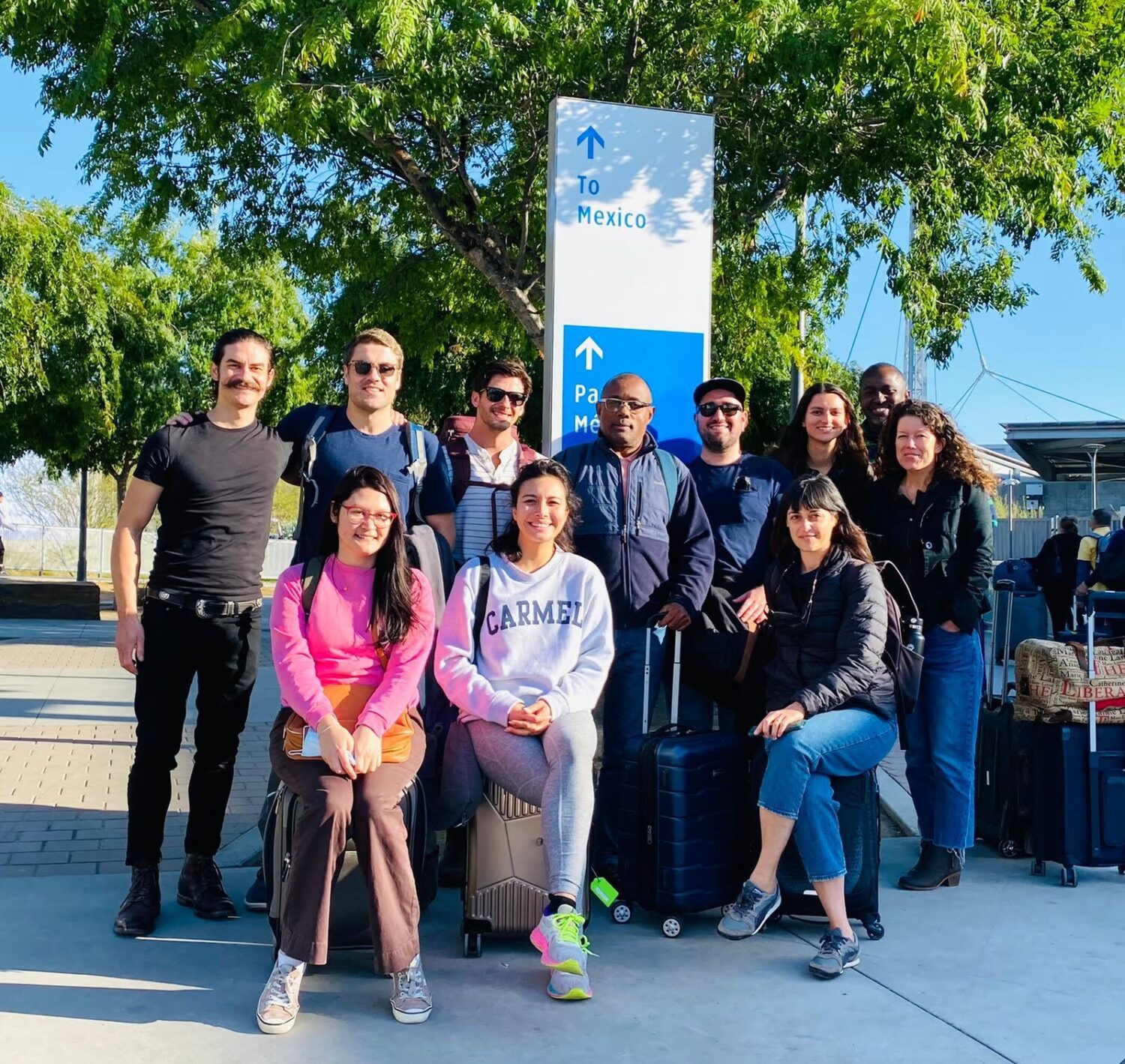UC Law SF Students Spend Spring Break Assisting Asylum Seekers at the Border

Some law students got hands-on experience helping asylum seekers at the border during spring break.
Seven UC Law SF law students spent their spring break at the US-Mexico border, visiting shelters for migrants and assisted Haitian asylum seekers by sharing information about asylum laws and processing steps.
The students were part of the longstanding Hastings to Haiti Partnership program, under the supervision of Professor Blaine Bookey, the Center for Gender and Refugee Studies’ Legal Director, and Professor Nicole Phillips, the Haitian Bridge Allies’ Legal Director.
During the week there, Hastings’s students were able to help two unaccompanied minors cross the border and advocate for a mother with three children.
Bookey and Phillips organized the delegation to Tijuana, Mexico. One unexpected event that occurred on the trip, was Bookey’s successful appeal – with the support of students Emma Hyndman ’22 and Peter Habib ’23 – to get a Ukrainian mother and her children to be allowed to cross the border, an act that received national attention.
“By the end of the week, each of the students had presented to and interviewed dozens of families, children and adults facing some of the most difficult experiences in their lives. The growth we witnessed in the students over the week was deeply inspiring,” said Bookey.
Students who went on the trip, reflected on their experiences, which they described as “eye-opening” and “life changing.”
“This was the greatest experience of my law school career thus far,” said Nick Wiley ’23. He recalled giving people waiting for asylum “Know Your Rights” training and the reaction of one of the men, who grabbed the microphone. “Instead of asking a question, he thanked us for being there,” Wiley said. “This man hadn’t met any of us before and had been through things one can’t even imagine. To still have the compassion to thank us for wanting to help was incredibly moving and something I’ll never forget.”
Anuradha Lingappa ’22, recounted the perils facing the Haitians they met with, “The journey [to the U.S. border) includes natural dangers (like jaguars, venomous snakes, river crossings, and mud slides) as well as human dangers because the place is overrun with criminal gangs that steal and commit sexual violence against vulnerable refugees. The stories I heard of impossibly dangerous journeys to get to the U.S. really struck me.”
“Throughout law school, you learn about rules and standards that are applied to the issues that a client may have. However, most of law school does not prepare you for the actual interaction with the client,” said Eric Sanchez ’23. “You do not learn how to be an empathetic and attentive listener. You do not learn how to take extensive notes while remaining present in the conversation. You do not learn how to recognize real-time issues and problems that are not neatly typed out for you. Sometimes, you forget that the cases that you read are connected to real people with real emotions that are in real situations. This trip taught me all the above, and then some.”
Kyle Da Silva ’23 said he empathized with the challenging stories he heard, “I’d felt a little calloused from law school and the isolation of the pandemic. I cried last week, and it was good for me. It felt like whatever sort of cynical crust I’d built up while at school had begun to crack a little, and I am grateful for that.”
The students shared that the skills they learned will help them in their future careers as attorneys including advocating for immigrants and refugees. “I think it was an important class for Hastings to offer because it provided me guidance on what a legal career in the field of refugee law would look like and built my confidence to know I would be capable of following that path,” Lingappa said. In addition to the students mentioned, Mali Gillespie ‘24 also participated in the delegation to Tijuana.
Many UC Law SF students spent their spring breaks doing pro bono work, including doing client intakes for asylum cases, legal writing and research, and assisting low-income clients from rural communities in New York with pro se uncontested divorce proceedings.